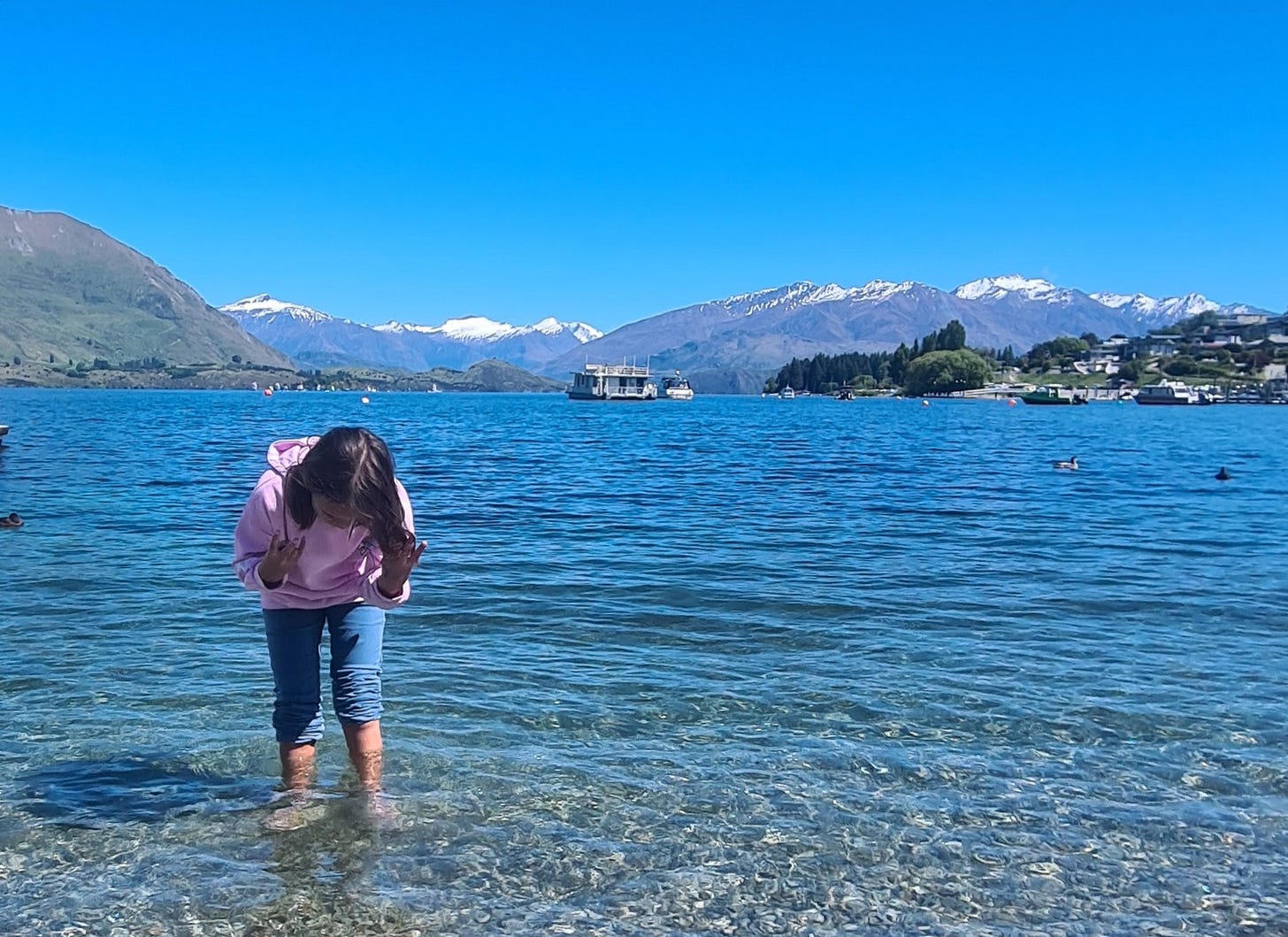Enabling Good Lives (EGL) are a set of principles. The Waikato EGL demonstration site was set up to embody these ideas and principles in real-life everyday terms.
We want our (disabled) daughter to live independently; to live a neglect-free, abuse-free life, just like we do for our non-disabled kids. We are painfully aware of her vulnerabilities. The Abuse in State Care report paints a grim picture indeed of her vulnerabilities. It terrifies the living daylights out of me, reading parts of that report.
Our daughter is a joy and a delight. She greets every new morning with joyful abandon, cheerfully announcing she “had a good sleep, did you have a good sleep?” My friend, it is barely half six. I have not had a ‘good sleep’! When I collect her from school, every day it is '“I had a good day today” and “Can we go to the shop?” my responses are immaterial. They are always followed by asking where everyone in the family is. This is her routine of joy and care.
Reading the Abuse in State Care reports, it so clearly and horrifically lays out what the future holds for our daughter, if we are not diligent and alert.
Enabling Good Lives isn’t just a set of principles for us - it is a roadmap for us to build an abuse-free, neglect-free life for our vulnerable child.
For us, over the years we’ve been part of the Waikato EGL demonstration site, it’s seen our thinking shift from “what can we buy with our funding” to “what do we need to do now to work towards our daughter having an ordinary life”.
We are painfully aware that we will age and die before our child, and that we cannot always be the backstop and care provider. This is the grim reality that parents of disabled children must address.
Working towards an ordinary life for our child means creating positive whānau experiences now. It means creating lasting memories of love and care, where she is seen and treated as a valued member of her whānau.
Working towards a positive future for our daughter looks like spending time as a whānau at the beach (her absolute love) each year. It looks like going to 10-pin bowling as family. It looks like attending tangi at marae with her Nan. It looks like swimming lessons and rock climbing with her peers. It looks like creating positive experiences and memories that will sustain us all during the hard times.
For the unaware, the cruel, and the callous, such activities are too-easily dismissed as unnecessary luxuries.
We know, that if we are to future-proof an ordinary life, we need to build positive relationships with her siblings and her whānau now, in the everyday. We know that building a neglect-free, abuse-free life requires intentional action and whānau connection now, in the everyday, so she isn’t left isolated and alone. We know that it is memories of the good times together that is the glue that holds us when things are tough.
We also know that this requires flexible funding that understands our long-term goals.
We also know that she needs depth and breadth of community beyond whānau. She needs connections with peers and like-minded others. This means connecting with organisations like Halberg and attending their annual games, so she meets other kids like her. It means enrolling her with Kāpō Māori Aotearoa and attending their bi-ennial Hui Taumata so she has a community beyond her immediate family.
Achieving this requires flexible funding based on Enabling Good Lives principles and which understands our long-term goals.
The direction the current government is taking worries me deeply. The attitude towards disabled people and families, the language and lies, the myopic focus on finance alone, all of this is taking us back to a climate that enables abuse and neglect.
We must not allow the cruel and the callous to set the agenda and determine what is and is not suitable for disabled people and their families. If there is $12.4 billion in cumulative revenue for the tobacco industry, there surely is more than enough to support disabled people and their families to live ordinary lives.





Dr Bex, thanks for the window into this EGL program. From your words it sounds like it really supports families to move beyond exisiting and allows for some prospects for a future where parents can feel comfortable that their children will be set up for a full life with connections to communities of care and friendship. In my opinion these investments are a no brainer, better than any bridge to nowhere. We can learn a lot from the joy your daughter exudes! Kia Kaha. We will overcome.